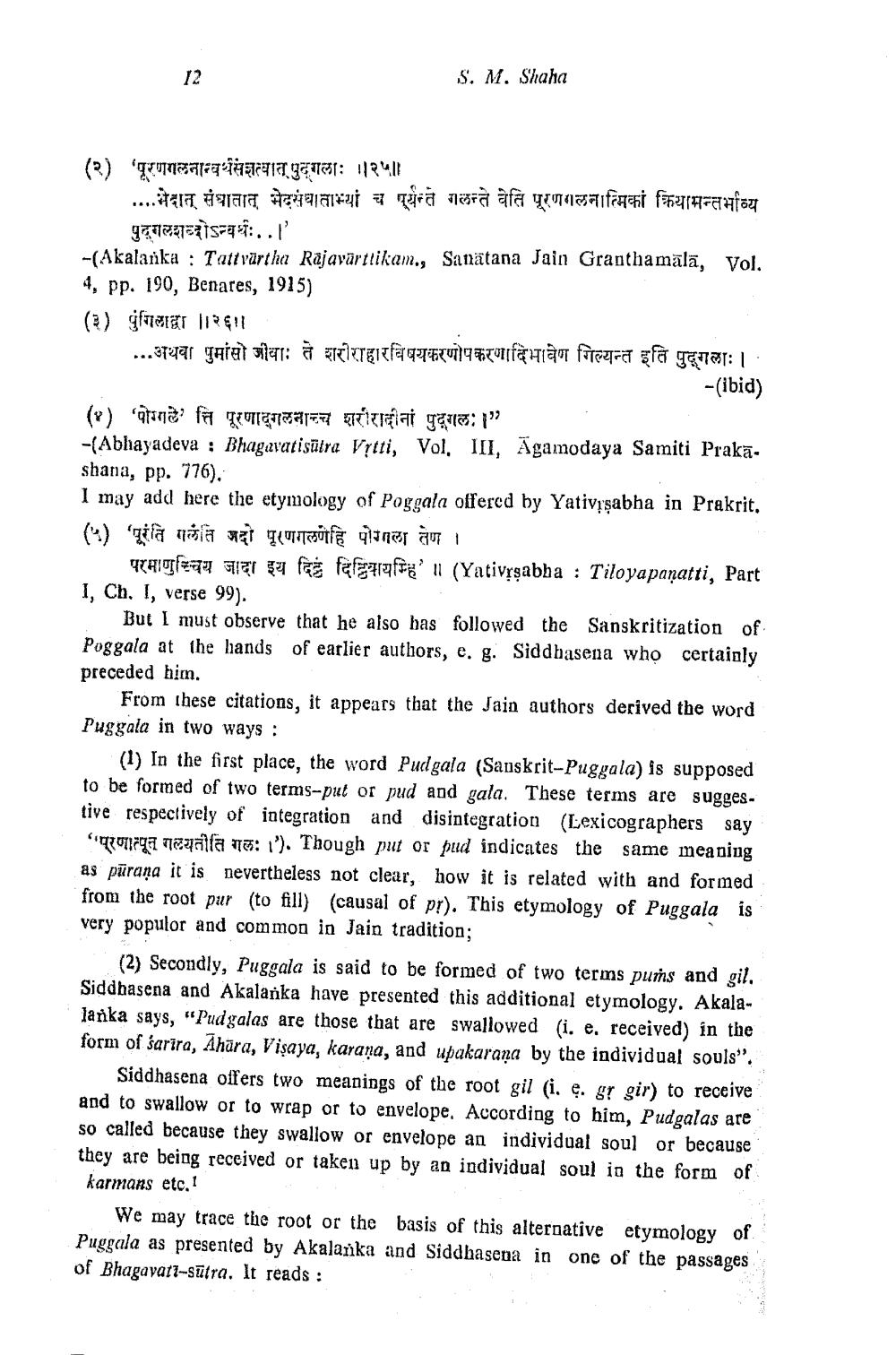________________
S. M. Shaha
() grunara 1412 37: Pul
....भेदात् संघातात भेदसंधाताभ्यां च पर्यन्ते गलन्ते वेति पूरणगलनामिका क्रियामन्तर्भाव्य
पुद्गलशब्दोऽन्वर्थः..।' -(Akalanka : Tattvärtha Rajavürttikam., Sanatana Jain Granthamala, Vol. 4, pp. 190, Benares, 1915) () facet 112611 ...अथवा पुमांसो जीवाः ते शरीराहारविषयकरणोपकरणादिभावेण गिल्यन्त इति पुद्गलाः। .
-(ibid) (v) ana fet grotetaan taitaai geria: -(Abhayadeva : Bhagavati sülra Vitti, Vol. III, Ägamodaya Samiti Prakāshana, pp. 776). I may add here the etymology of Poggala offered by Yativışabha in Prakrit. (५) 'पूरति गलंति जदो पूरणगलणेहि पोगाला तेण ।
Iglu siel a fa felett 11 (Yativrşabba : Tiloyapaņatti, Part 1, Ch. I, verse 99).
But I must observe that he also has followed the Sanskritization of Poggala at the hands of earlier authors, e. g. Siddhasena who certainly preceded him.
From these citations, it appears that the Jain authors derived the word Puggala in two ways :
(1) In the first place, the word Pudgala (Sanskrit-Puggala) is supposed to be formed of two terms-put or pud and gala. These terms are suggestive respectively of integration and disintegration (Lexicographers say fequunga nagalla 15: 1'). Though put or pud indicates the same meaning as pūrana it is nevertheless not clear, how it is related with and formed from the root pur (to fill) (causal of pr). This etymology of Puggala is very populor and common in Jain tradition;
(2) Secondly, Puggala is said to be formed of two terms puns and gil. Siddhasena and Akalanka have presented this additional etymology. Akalalanka says, "Pudgalas are those that are swallowed (i. e, received) in the form of sarira, Ahāra, Visaya, karana, and upakarana by the individual souls”.
Siddhasena offers two meanings of the root gil (i, e. sr gir) to receive and to swallow or to wrap or to envelope. According to him, Pudgalas are so called because they swallow or envelope an individual soul or because they are being received or taken up by an individual soul in the form of karmans etc. 1
We may trace the root or the basis of this alternative etymology of Puggala as presented by Akalarka and Siddhasena in one of the passages of Bhagavati-sūtra. It reads :




